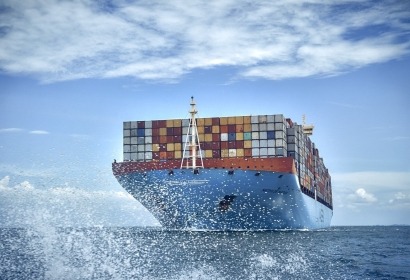
As the first global car maker to announce such a switch, the company will achieve an immediate reduction in fossil CO2 emissions from intercontinental ocean freight by 55,000 tonnes over a year. Thanks to the renewable fuel, CO2 emissions are reduced by at least 84 percent1 compared to fossil fuel. The reduction is equivalent to the CO2 emissions of a full truck driving around the equator about 1,200 times.
The fuel used is Fatty Acid Methyl Esters (FAME) and is based on renewable and sustainable sources, mainly waste cooking oil. No feedstock related to palm oil or palm oil production is used.
Volvo will use renewable fuel for inbound ocean container transports of production material destined for manufacturing plants based in Europe and the Americas, as well as all spare parts distribution made globally by ocean container transports.
“Renewable fuel is not the end game for removing CO2 from the world’s ocean freight needs,” says Javier Varela, our Chief Operating Officer and Deputy CEO. “Yet this initiative shows that we can act now and implement solutions that achieve significant results during the wait for long-term technological alternatives.”
“We don’t view this initiative as a competitive advantage,” Varela adds. “On the contrary, we want to spark other car makers into action as well, to increase demand for carbon efficient ocean transports and to establish renewable fuels as a mid-term solution that works. We all have a responsibility to act.”
The company has been working on this initiative together with its logistics partners Maersk, Kuehne+Nagel and DB Schenker. These logistics service providers have, since June 1, 2023 switched to renewable fuel for equivalent energy needed for all container transports done for Volvo Cars.
"When renewable fuel is not available on a specific shipment, our renewable fuel allocation is instead used by the logistics partner for another customer’s route elsewhere, so the overall cut in fossil fuel use is kept on par with actual use in container vessels. The methodology, called mass-balancing, is third-party audited regularly. The renewable fuel itself is certified and not produced in competition with food crops. It is therefore sustainable in accordance with the EU Renewable Energy Directive, " according to Volvo.
“We’re continually exploring sustainability opportunities across all aspects of our supply chain, and across our overall business,” Varela says. “Our list of initiatives keeps growing as we work towards our ambition of becoming a climate neutral company by 2040.”
"Our ambition is to reduce our lifecycle carbon footprint per car by 40 percent between 2018 and 2025, which requires a 25 percent reduction in operational emissions, including logistics. We’re also aiming for climate-neutral manufacturing by 2025. Both these milestones are important steps toward our climate neutral ambitions."
1Comparison of fuels include emissions from production and use of the equivalent amount of energy, so called Well-to-Wake (WTW).

